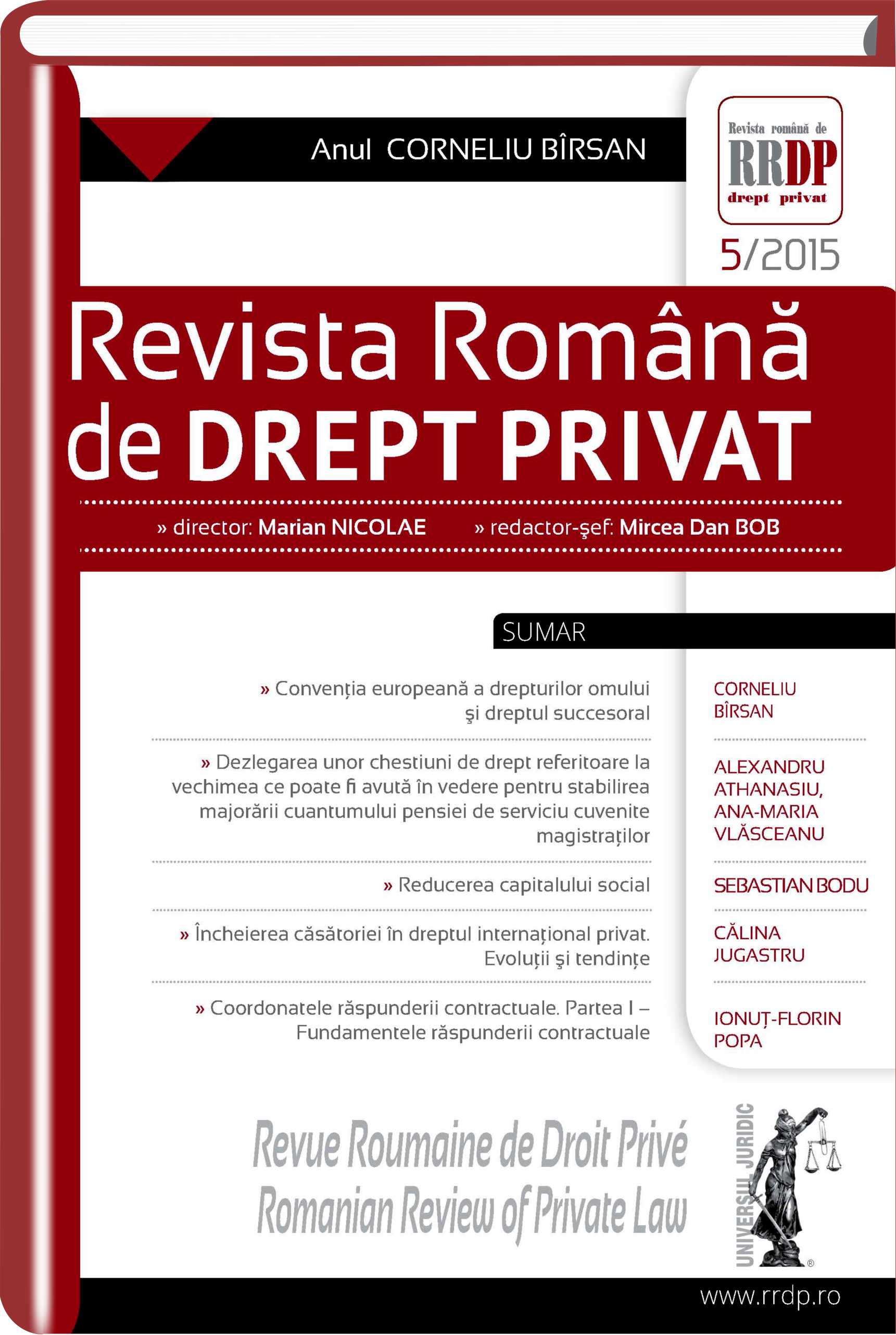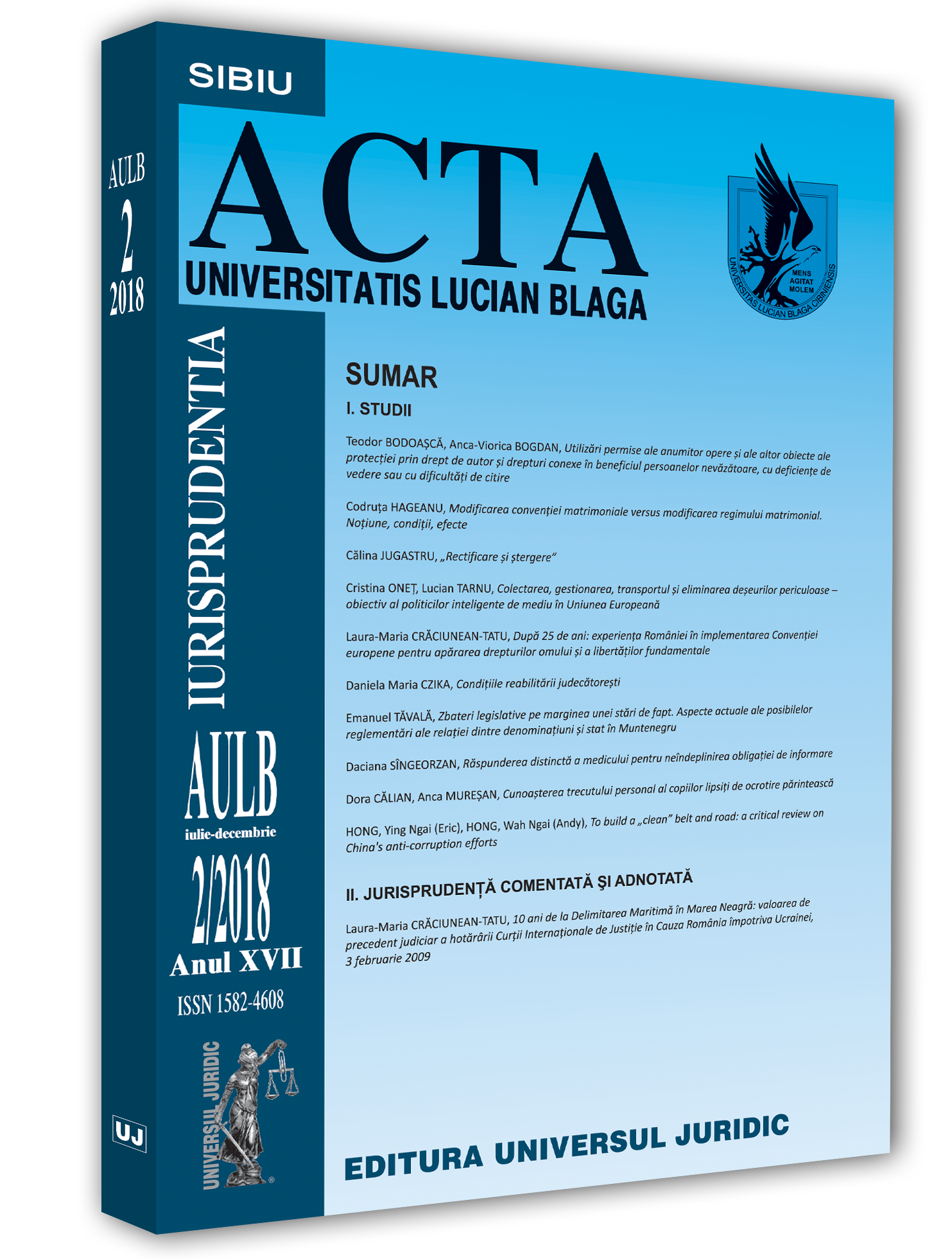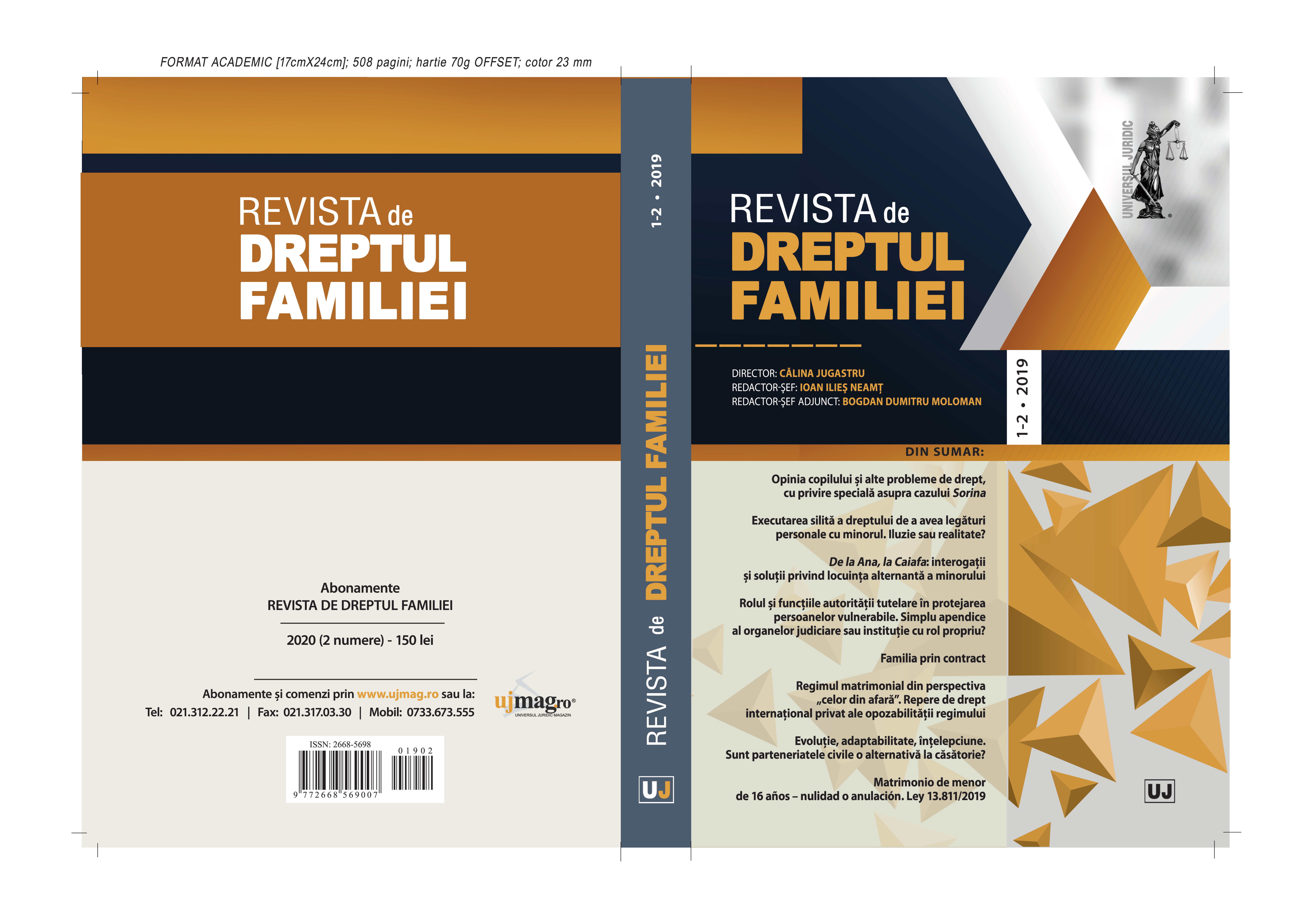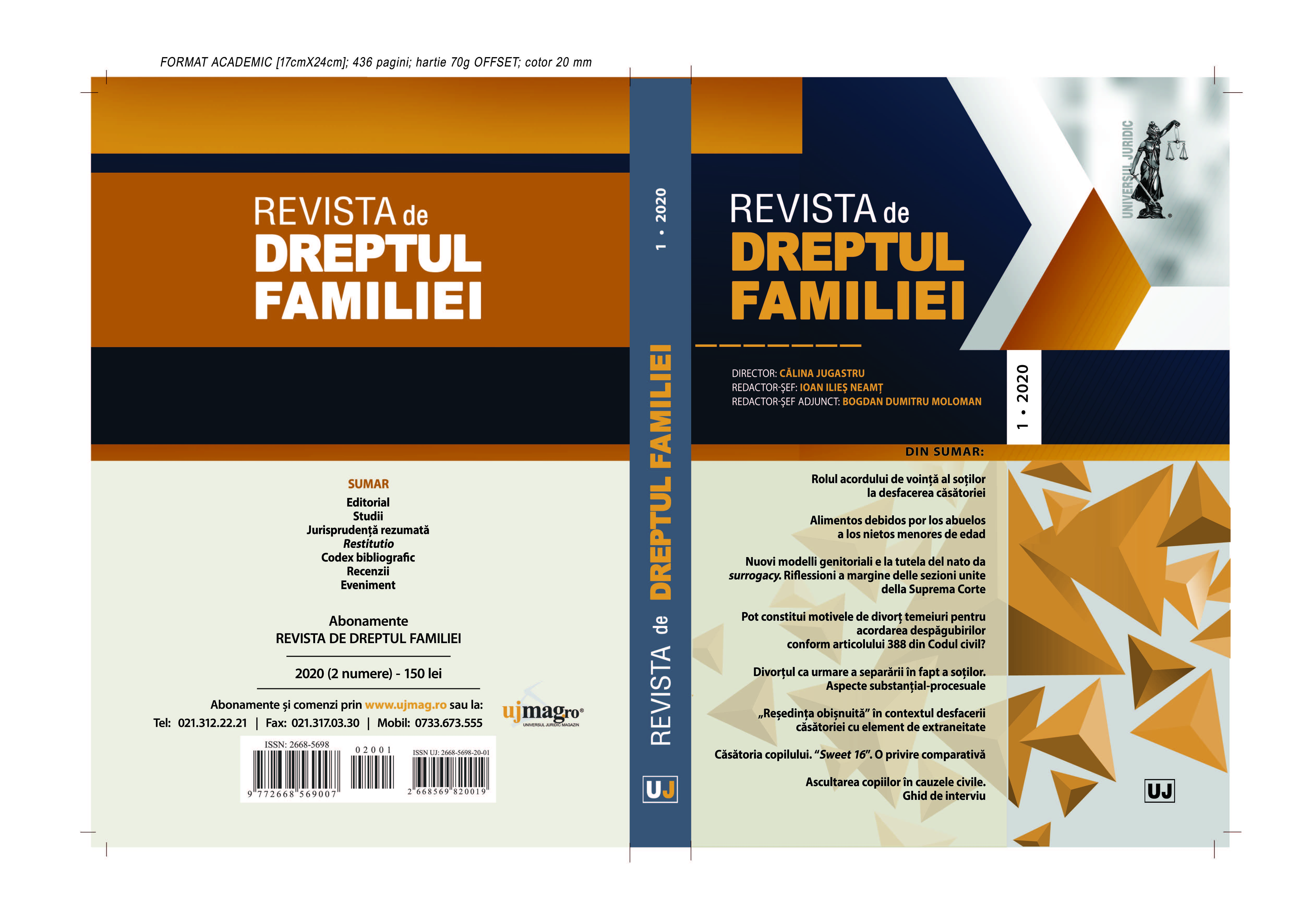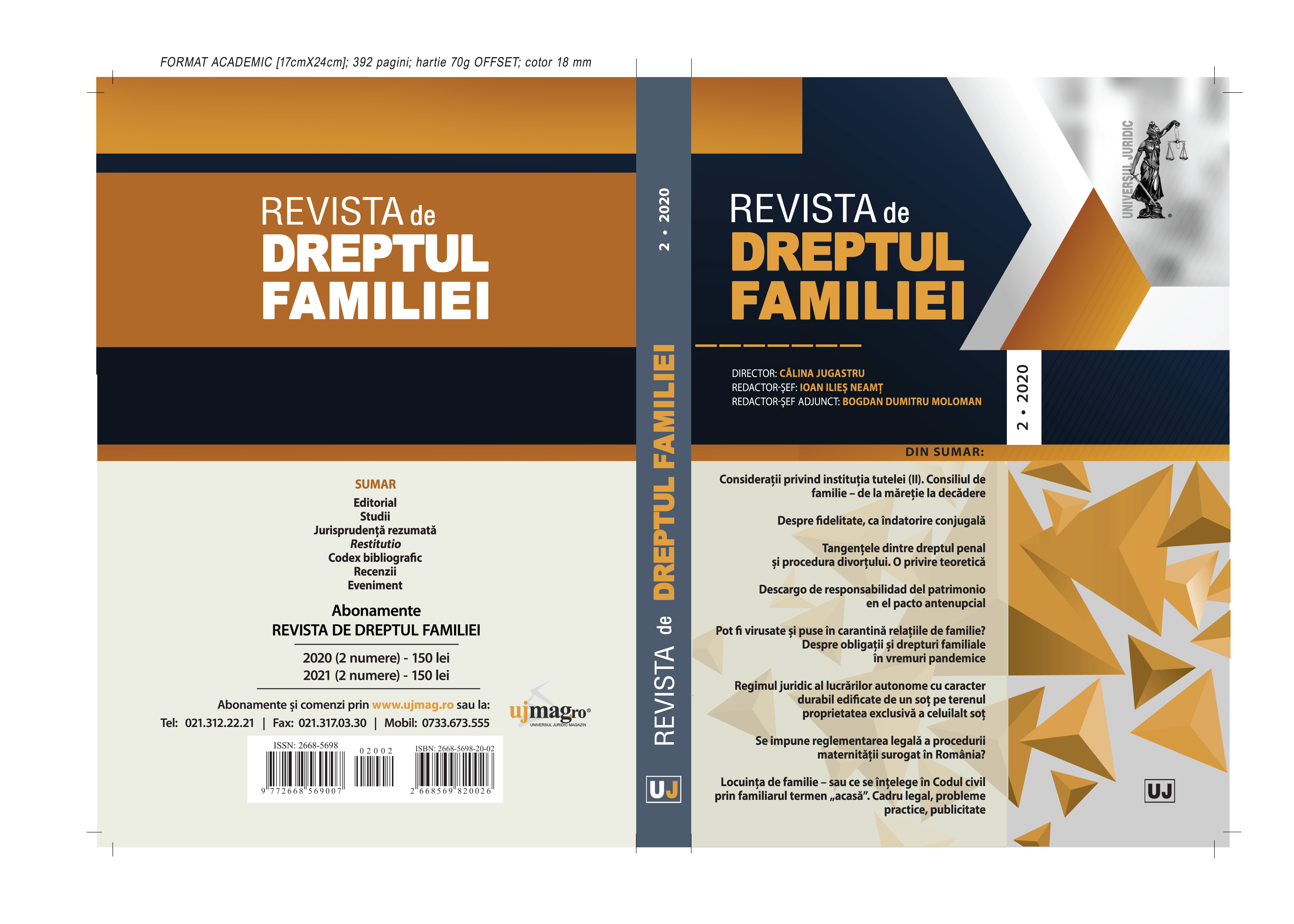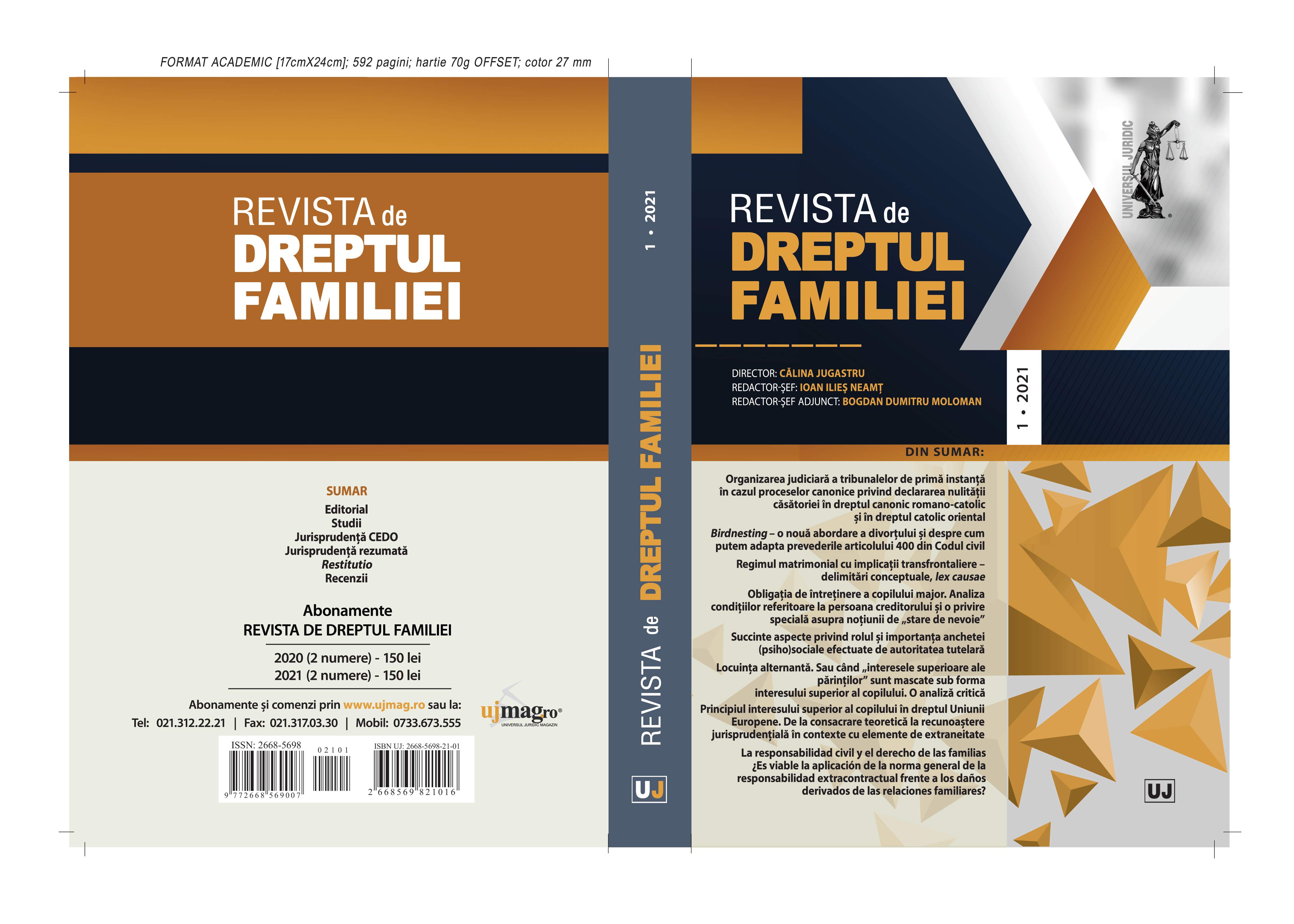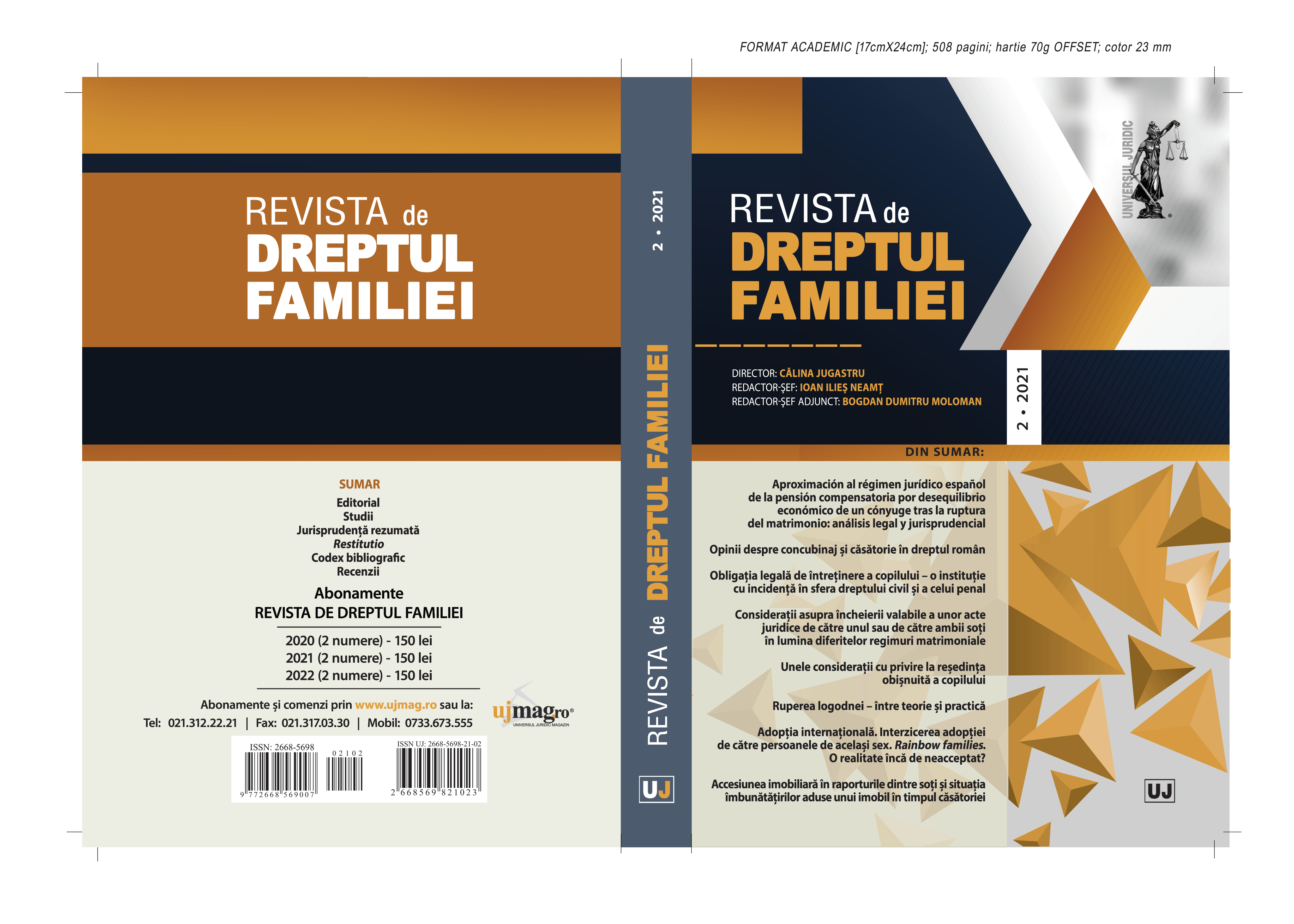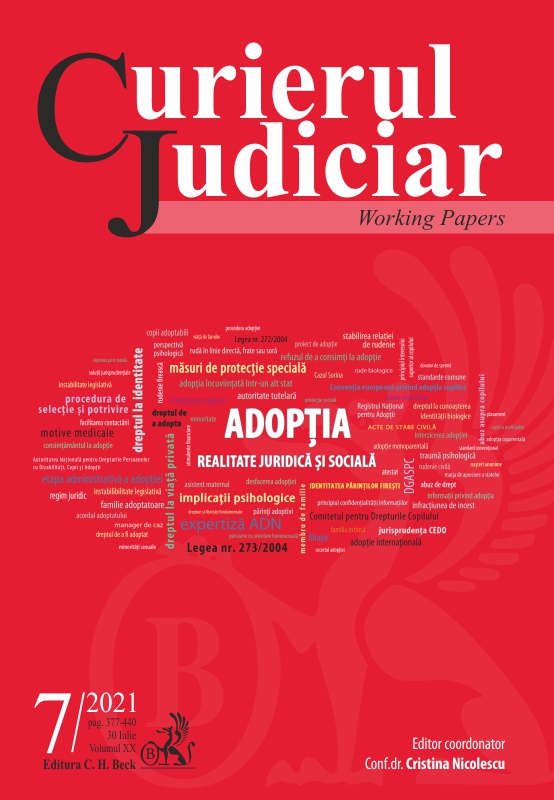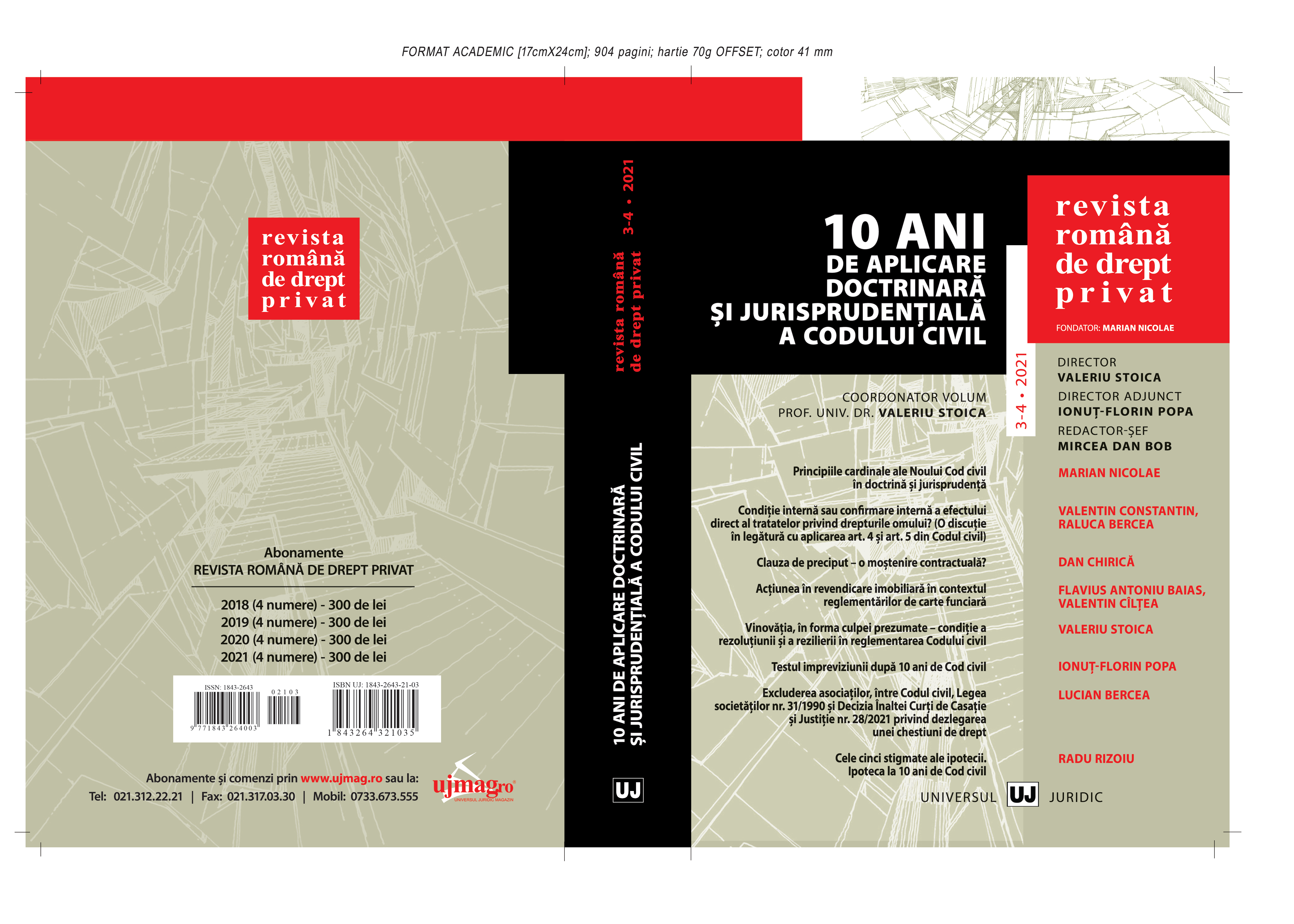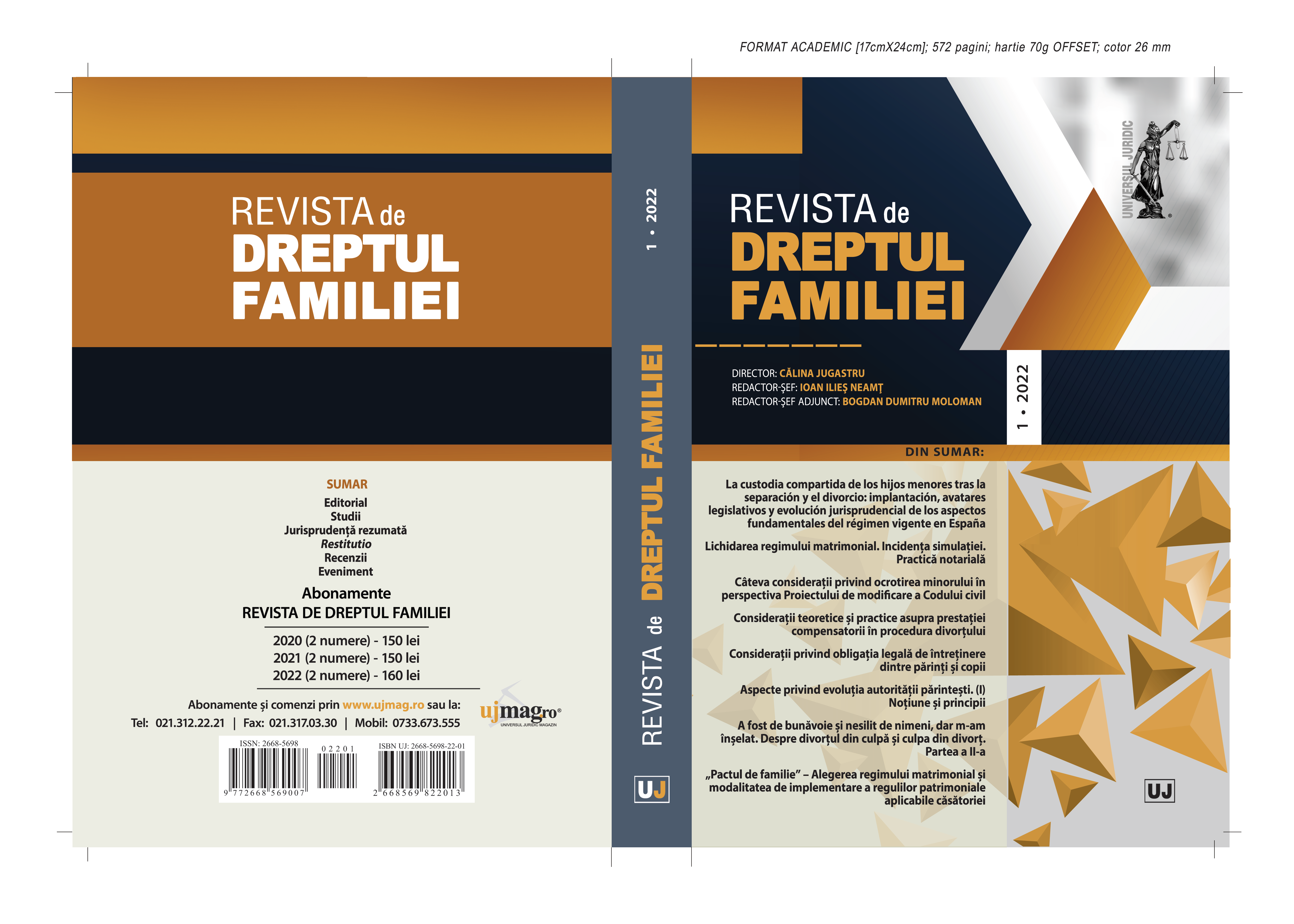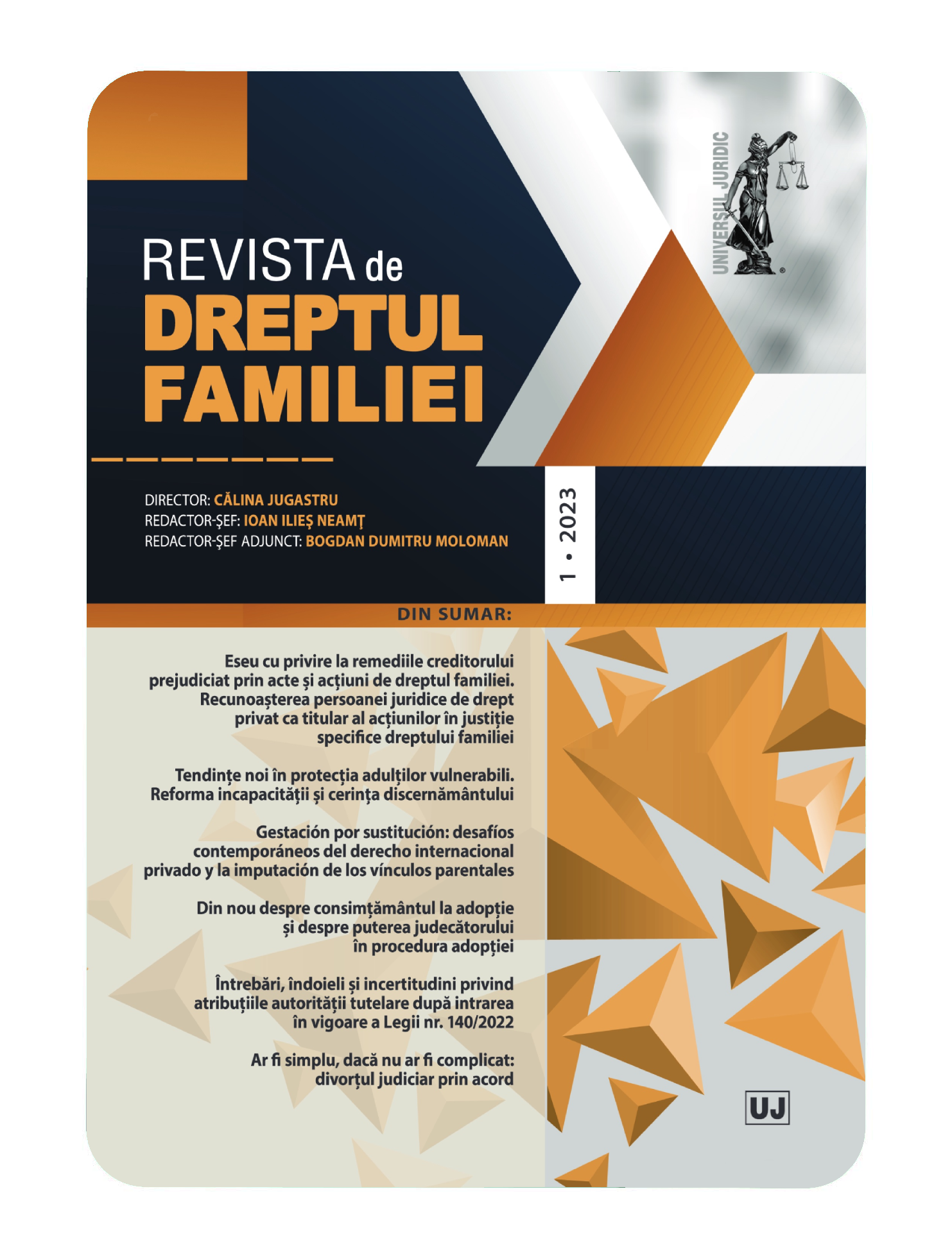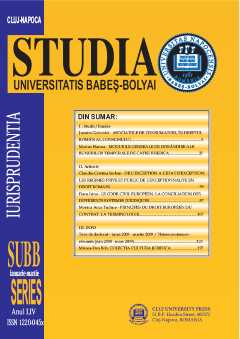
THE NATURE OF PRIVILEGED ALLOCATION CLAUSE – A CONTROVERSIAL ISSUE IN ROMANIAN LITERATURE
NATURA JURIDICĂ A CLAUZEI DE PRECIPUT – SUBIECT DE CONTROVERSE DOCTRINARE
Keywords: privileged allocation clause; matrimonial convention; liberality; partition clause; matrimonial advantage.
The nature of privileged allocation clause – a controversial issue in Romanian literature. The privileged allocation clause is a legal document signed by spouses or future spouses, comprised in the content of a marriage agreement, regarding the possibility that, in the event of the death of one of them, the surviving spouse take one or more of the common property held in condominium or under common ownership, before the partition of the inheritance and without the obligation to pay their equivalent value. Unlike the French Civil Code which, in art. 1516 expressly provides that this clause is not a donation but a "matrimonial agreement between members", or the Belgian Civil Code which also expressly provides that the privileged allocation clause is not considered a donation, but a matrimonial convention, the Romanian legislature failed to make this statement, leaving it to the doctrine to determine the legal nature of the privileged allocation clause, with all the consequences arising from it. In addressing the issue, the fact that it is a gratuitous act concluded between the living but with mortis causa effects, regulating the property relations between spouses, the doctrine raised the question: is the privileged allocation clause a liberality or not? Finding a clear and concise answer concerns not only from the doctrine point of view, not being only a matter of scientific research, but it is important in practice, depending on the legal nature of the clause, a number of legal institutions with different legal effects being incident.
More...

